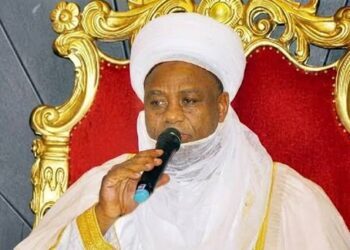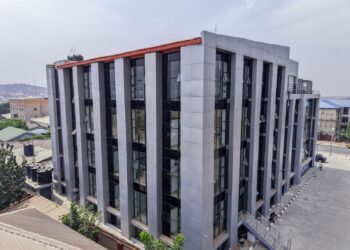A prominent figure in Nigerian architectural space and Development Manager, DR. Sa’id Kori, has underscored the need for Nigeria to promote reliable urbanisation models.
A statement issued by Sabitu Magaji, explained that the demographic, economic, and climatic shifts have transformed cities and urban centres which are now the dominant habitats of Nigerians.
He said the mode of urban development has a direct bearing on the processes leading to the attainment of sustainable development.
According to him, “It is critical for Nigeria to promote reliable urbanisation models. As natural resources are depleting globally, cities of emerging economies are becoming the drivers of the global economy.
“Reliable spatial frameworks and models for urban areas and government policies constitute a key factor for delivering consistent sustainable development to meet our increasing economic activities.
“Building Information Modelling (BIM) is a collaborative way for multidisciplinary information storing, sharing, exchanging, and managing throughout the entire building project lifecycle including planning, design, construction, operation, maintenance, and demolition phase (Eastman et al., 2011; Eadie et al., 2013).
“This digital modelling has provided designers and builders with new opportunities to achieve better quality buildings at lower cost and shorter project duration, thus enhancing rapid, quality development.
“Building Information Modelling (BIM) is a digital working method that uses virtual digital 3D models as the basis for planning, designing, constructing, managing and operating projects.
“The 3D models contain more than just graphical information, allowing properties to be attached to each building component (such as material type, performance data, and cost, for example.)
“In effect, the models become a central repository of all relevant project information that can be shared amongst the entire project team.
“BIM can be used for any type of project, not just buildings – bridges, roads, and other infrastructure projects can all benefit from using BIM.
“Architectural space has gone through many developments throughout history influenced by technology and building techniques on the one hand and by functional and environmental issues and human factors on the other hand.
“When technologies develop, architecture evolves as well: the architectural techniques change, as does the architectural outcome.
“The digital revolution reflected on architecture, as did other scientific and life fields. The architectural production became the product of an intelligent design process directly influenced by the digital community in general. As the country digitalises, so must our architectural approach.
“Some progressive thinking urbanists in the country like Arc. Sai’d Kori of Borno State is propagating the use of modern architectural design and Building Information Modelling (BIM) to bring the most sustainable structural and urban concepts and designs to reality.
“Arc. Sai’d Kori is a specialist in these areas, having earned M.Sc. in Digital Architectural Design from University of Salford, Manchester, UK and a Ph.D. in Architecture with research focus on sustainable urban development from the University of Liverpool, UK.
“With his background in academia and business, Dr. Sai’d Kori is an advocate for developing reliable homes and urban communities matching our current times.”
He pointed out that Nigeria must urgently find ways to achieve economic and social growth without further cost to the environment.
According to him, “Reliable cities attract investments, generate jobs and create wealth. Prioritising reliable urbanisation can ensure sustainable production and consumption of our resources, preparedness for natural disasters, and preservation of our infrastructures.
“Environmental friendliness is next to godliness. Urbanization can be detrimental to sustainable development and also the aimed reduction in per capita greenhouse gas emissions when it is not properly managed.
“Reliable urbanization is one of the few solutions for effectively dealing with our population explosion. Nigeria is in need of urban patterns that aren’t chaotic to handle infrastructural development and expansion as simply as possible.
“Housing strategies, befitting infrastructural plans, slums prevention strategies, and jobs creation are vital in attaining reliable urban communities. Consequently, more jobs creation, climate change adaptation, and improved quality of life are better achieved in properly managed urban communities.”











